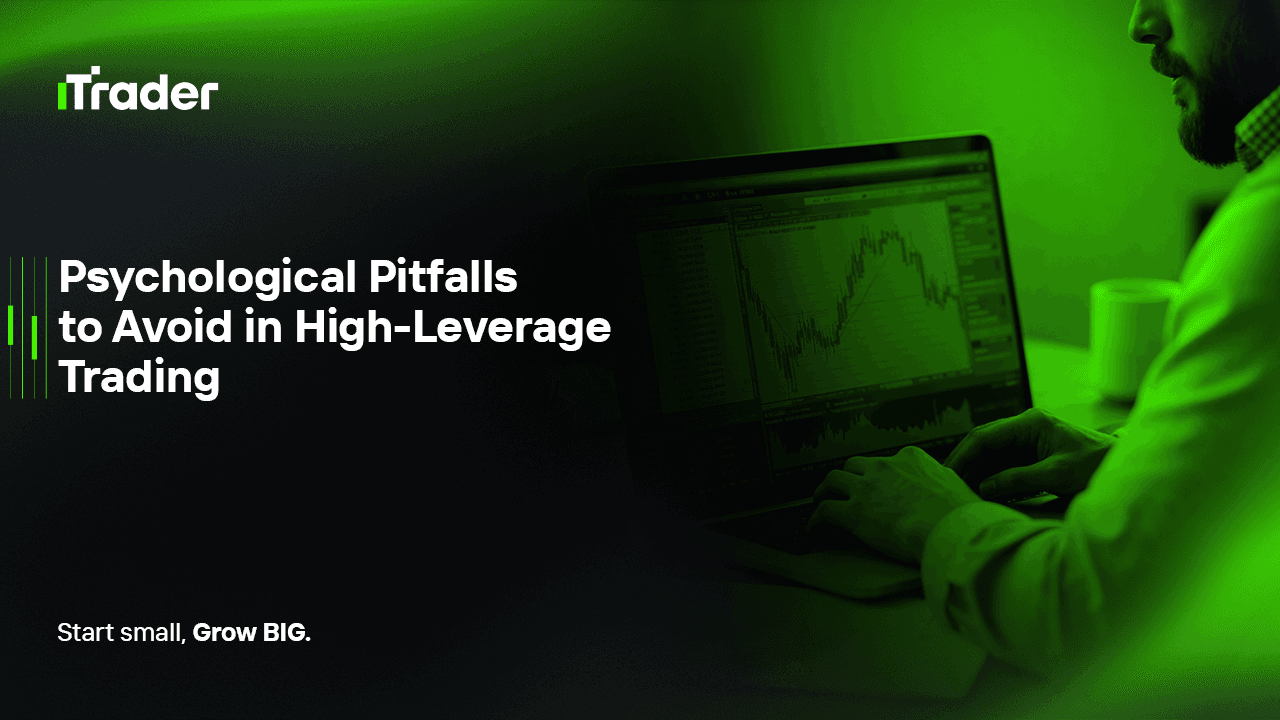2025-07-24
In the forex market, leverage is one of the most powerful tools available to traders. Prop firms often offer leverage ratios as high as 1:50, 1:100, or even 1:500, enabling traders to control large positions with minimal capital. While this creates opportunities for substantial profits, it also magnifies risk. A single mistake can wipe out an entire account. In such environments, technical skill alone is not enough—emotional discipline and self-regulation become paramount.

Why is psychology so important in trading? Because every trading decision—when to enter, when to exit, how much to risk—is deeply intertwined with emotional reactions. Under the pressure of high leverage, rational thinking often gives way to reactive behavior driven by stress, fear, or overconfidence.
AI Summary:
This article explores the common psychological pitfalls that forex prop traders face when trading with high leverage and provides practical methods to overcome them. Topics include loss aversion, overconfidence, revenge trading, and fear of missing out (FOMO). By developing structured emotional control techniques, traders can build long-term consistency and resilience in a highly leveraged environment.
According to Prospect Theory by Kahneman and Tversky, humans are more sensitive to losses than they are to equivalent gains. In trading, this manifests as an unwillingness to close losing trades, even when a stop-loss should have been hit. Traders hope for a reversal and hold onto losing positions far too long. Under high leverage, even a minor price move against you can result in a catastrophic loss if this bias is not managed.
After a series of winning trades, traders may start to believe they “understand” the market or that it somehow conforms to their analysis. This can lead to dangerous behavior—overleveraging, removing stop-losses, or taking impulsive trades with an unjustified sense of certainty. The truth is, no one can predict the market with absolute accuracy, and overconfidence under leverage leads to disproportionate risk.
After taking a loss, traders often experience anger and frustration, prompting them to “get back” at the market. This results in emotionally driven decisions, often with larger position sizes and less planning. In its most extreme form, traders double down to recover their losses quickly—one of the fastest ways to blow up a leveraged account.
Sudden market movements often provoke anxiety in traders who feel they are missing out on an opportunity. FOMO leads to spontaneous trades that deviate from a trader’s plan or system. In a high-leverage environment, a single impulsive trade made out of fear can result in significant losses.
Setting constraints before trading begins is a powerful way to regulate emotions. This includes:
The key is to make decisions while calm—not in the heat of a trade where pressure and emotions cloud judgment.
This refers to automatic stop mechanisms that pause trading during periods of emotional instability. For example:
These rules give the trader space to reset and analyze without pressure, preventing a spiral of emotional decision-making.
Traders should keep a journal not only for trade data but also for psychological states. After each trade, reflect on:
This habit allows traders to identify recurring patterns, understand emotional triggers, and make gradual improvements over time.
Just because a prop firm offers 1:100 or 1:500 leverage does not mean you should use it all. Leverage should match your emotional capacity. Each trader has a unique emotional threshold, and managing risk within your personal limits is essential for long-term sustainability. Leverage is a tool—not a necessity.
Prop trading environments are structured to test performance under strict rules and time constraints. Even if a strategy is solid and the system is backtested, a trader can fail if their psychological resilience is lacking.
Common psychological pressures in prop firms include:
These create a mental environment ripe for emotional decisions. Therefore, prop traders must go beyond technical competence and train themselves for psychological endurance.
Emotional discipline is not about suppressing emotions—it’s about recognizing and managing them effectively. A trader’s psychology consists of habits, tendencies, and a continuous process of self-discovery. Developing it requires daily awareness, practice, and structure. This includes:
Only when a trader gains control over their internal world can they wield leverage in their favor rather than it working against them.
High leverage in the forex market presents powerful opportunities, but it also introduces severe psychological risks. Success in trading is not just about analyzing price or timing entries—it depends largely on a trader’s ability to stay emotionally grounded, follow a system, and recover from mistakes without spiraling into destructive behavior.
Prop traders especially must prioritize emotional regulation as much as they do strategy. When properly managed, psychological resilience becomes a trader’s greatest edge—ensuring that leverage becomes an ally instead of a liability.
© 2025 iTrader Global Limited | 公司注册号 15962
iTrader Global Limited 位于科摩罗联盟安儒昂自治岛穆察姆杜 Hamchako,并受科摩罗证券委员会(Securities Commission of the Comoros)许可及监管。我们的牌照号为 L15962/ITGL。
iTrader Global Limited 以“iTrader”作为交易名称,获授权从事外汇交易业务。公司的标志、商标及网站均为 iTrader Global Limited 的专属财产。
风险提示: 差价合约(CFD)交易因杠杆作用存在高风险,可能导致资金快速亏损,并非适合所有投资者。
交易资金、差价合约及其他高杠杆产品需要具备专业知识。
研究显示,84.01% 使用杠杆的交易者会遭受亏损。请务必充分了解相关风险,并确认在交易前已做好承担资金损失的准备。
iTrader 特此声明,不会对任何个人或法人在杠杆交易中产生的风险、亏损或其他损失承担全部责任。
本网站提供的新闻及信息仅用于教育目的。用户应独立且审慎地作出金融决策。
限制条款: iTrader 不会向法律、法规或政策禁止此类活动的国家或地区居民提供本网站或相关服务。若您居住在限制使用本网站或服务的司法管辖区,您有责任确保遵守当地法律。iTrader 不保证其网站内容在所有司法管辖区均适用或合法。
iTrader Global Limited 不向以下国家/地区的公民提供服务,包括但不限于:美国、巴西、加拿大、以色列及伊朗。